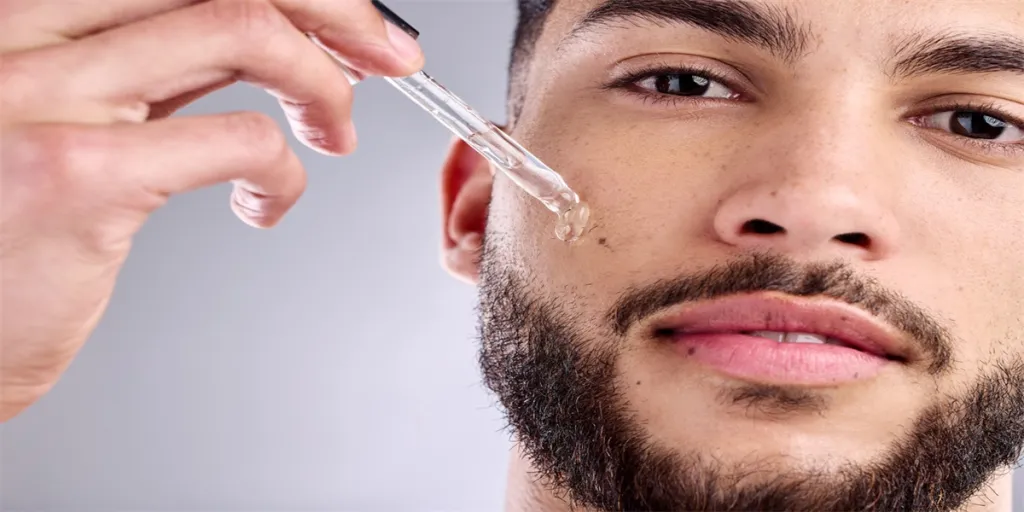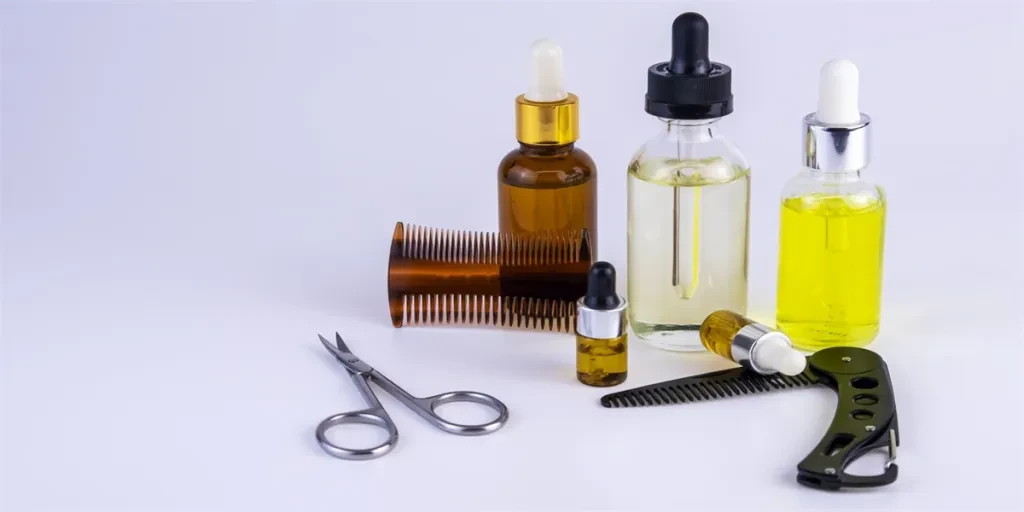In the ever-evolving landscape of men’s grooming, beard oil has emerged as a staple product, capturing the attention of consumers and businesses alike. As we step into 2025, the demand for beard oil continues to surge, driven by changing grooming habits, social media influence, and a growing awareness of personal care. This guide delves into the intricacies of sourcing beard oil, offering insights into market trends, consumer preferences, and the potential for growth in this dynamic sector.
Table of Contents:
– Understanding the Rise of Beard Oil: Trends and Market Potential
– Exploring Popular Beard Oil Types and Their Benefits
– Addressing Common Consumer Pain Points with Beard Oil
– Innovations and New Products in the Beard Oil Market
– Final Thoughts on Sourcing the Best Beard Oil for Business Buyers
Understanding the Rise of Beard Oil: Trends and Market Potential

What is Beard Oil and Why It’s Gaining Popularity
Beard oil, a blend of carrier and essential oils, is designed to moisturize and condition facial hair and the skin beneath. Its popularity has skyrocketed in recent years, transforming from a niche product to a mainstream grooming essential. The global beard oil market was valued at USD 1.07 billion in 2022 and is projected to grow at a robust CAGR of 6.8% through 2028, according to a professional report. This growth is fueled by an increasing awareness of grooming products among men and a cultural shift towards embracing facial hair as a symbol of style and individuality.
Social Media Buzz: Trending Hashtags and Influencer Endorsements
Social media platforms have played a pivotal role in the rise of beard oil. Influencers and celebrities frequently showcase their grooming routines, often highlighting the benefits of using beard oil. Trending hashtags such as #BeardGoals, #BeardCare, and #BeardOil have amassed millions of posts, creating a buzz that drives consumer interest. Influencer endorsements, particularly from well-known figures in the grooming and lifestyle sectors, have significantly boosted the visibility and credibility of beard oil products. This digital word-of-mouth marketing has been instrumental in shaping consumer perceptions and preferences.
Market Demand: Key Growth Areas and Consumer Preferences
The demand for beard oil is not just a fleeting trend; it reflects broader shifts in consumer behavior and preferences. The Asia-Pacific region is expected to be the fastest-growing market, with countries like China, India, Japan, and South Korea leading the charge. This growth is attributed to rising disposable incomes, an expanding middle class, and an increasing focus on personal grooming. By 2031, the Asia-Pacific region is projected to account for nearly 30% of the global market share, with China alone expected to register a volume of 6.00 million units.
In North America, the market continues to thrive, driven by high disposable income levels and a strong culture of personal grooming. The U.S. market, in particular, dominated the North American beard oil market in 2023 and is expected to maintain its lead through 2031. The resurgence of beards in popular culture, influenced by celebrities and social media personalities, has further fueled this demand.
Consumer preferences are also evolving, with a growing inclination towards organic and natural products. In 2023, the organic segment accounted for 32% of the market revenue, reflecting a shift towards health-conscious and environmentally sustainable choices. Premium beard oils, characterized by superior ingredients and luxurious packaging, are gaining traction among discerning consumers willing to invest in high-quality grooming products.
In conclusion, the beard oil market presents a lucrative opportunity for business buyers in 2025. With a strong market potential driven by social media influence, evolving consumer preferences, and regional growth, sourcing the right beard oil products can position businesses for success in this thriving sector.
Exploring Popular Beard Oil Types and Their Benefits

Natural vs. Synthetic Ingredients: Pros and Cons
When selecting beard oils, business buyers must consider the distinction between natural and synthetic ingredients. Natural beard oils, such as those containing argan, jojoba, and coconut oils, are favored for their organic properties and minimal chemical processing. These oils are rich in vitamins and antioxidants, which help nourish the beard and skin, reducing irritation and promoting healthy growth. For instance, a report by Research and Markets highlights the growing preference for natural ingredients due to their perceived safety and environmental benefits.
On the other hand, synthetic beard oils often include lab-created compounds designed to mimic the properties of natural oils. These products can offer consistent quality and longer shelf life, which is advantageous for large-scale distribution. However, they may lack the holistic benefits of natural oils and could potentially cause skin irritation for some users. Business buyers should weigh these factors, considering their target market’s preferences and any regulatory requirements regarding ingredient safety.
Scented vs. Unscented: Consumer Preferences and Feedback
The choice between scented and unscented beard oils is another critical consideration for business buyers. Scented beard oils, infused with essential oils like sandalwood, cedarwood, and citrus, provide an aromatic experience that many consumers find appealing. These scents can enhance the grooming routine, making it more enjoyable and luxurious. According to a professional report, the demand for scented beard oils is particularly high in regions where personal grooming is closely tied to cultural practices and social norms.
Conversely, unscented beard oils cater to consumers with sensitive skin or those who prefer a neutral grooming product. These oils are ideal for individuals who may be allergic to fragrances or who use other scented grooming products and do not want conflicting scents. Business buyers should consider offering both options to cater to a broader audience, ensuring they meet diverse consumer needs and preferences.
Specialty Oils: Targeting Specific Beard Needs
Specialty beard oils are formulated to address specific beard care concerns, such as dryness, dandruff, and patchiness. For example, oils containing tea tree or eucalyptus are known for their anti-inflammatory and antimicrobial properties, making them effective in combating beard dandruff and itchiness. A report by Research and Markets indicates that products targeting specific beard issues are gaining popularity, as consumers seek tailored solutions for their grooming needs.
Additionally, beard oils designed to promote growth often include ingredients like biotin and castor oil, which are believed to stimulate hair follicles and enhance beard density. Business buyers should consider stocking a range of specialty oils to cater to consumers with unique beard care requirements, thereby enhancing their product offerings and meeting market demand.
Addressing Common Consumer Pain Points with Beard Oil

Tackling Beard Itch and Dryness: Effective Solutions
Beard itch and dryness are common issues that many consumers face, particularly during the initial stages of beard growth. Effective beard oils can alleviate these problems by providing essential moisture and soothing irritated skin. Oils rich in vitamin E, such as argan and jojoba, are particularly effective in hydrating the skin and hair, reducing itchiness and flakiness. According to industry insights, products that emphasize their moisturizing properties tend to perform well in the market.
Innovative formulations that include ingredients like aloe vera and chamomile can further enhance the soothing effects of beard oils. These natural extracts are known for their calming properties, making them ideal for sensitive skin. Business buyers should prioritize beard oils that offer comprehensive hydration and soothing benefits to address these common consumer pain points effectively.
Managing Beard Dandruff: Key Ingredients to Look For
Beard dandruff, or “beardruff,” is another prevalent issue that can deter consumers from growing a beard. Effective beard oils for managing dandruff typically contain antifungal and antibacterial ingredients, such as tea tree oil and eucalyptus oil. These ingredients help to maintain a healthy scalp environment, preventing the growth of dandruff-causing fungi and bacteria.
Additionally, oils with exfoliating properties, like those containing salicylic acid, can help remove dead skin cells and prevent dandruff buildup. Business buyers should look for beard oils that combine these key ingredients to offer a comprehensive solution for managing beard dandruff, ensuring their products meet the needs of consumers seeking relief from this common issue.
Ensuring Non-Greasy Application: Innovations in Formulation
One of the main concerns consumers have with beard oils is the potential for a greasy residue. Non-greasy formulations are highly sought after, as they provide the benefits of beard oil without leaving an oily finish. Lightweight carrier oils, such as grapeseed and almond oil, are excellent choices for creating non-greasy beard oils. These oils are quickly absorbed by the skin and hair, providing moisture without a heavy feel.
Innovations in formulation, such as the inclusion of silicone-based ingredients, can also help achieve a non-greasy finish. These ingredients create a smooth, silky texture that enhances the application experience. Business buyers should consider these formulation advancements to offer beard oils that cater to consumers’ preferences for lightweight, non-greasy products.
Innovations and New Products in the Beard Oil Market

Emerging Trends: Organic and Vegan Beard Oils
The demand for organic and vegan beard oils is on the rise, driven by increasing consumer awareness of environmental and ethical issues. Organic beard oils, made from sustainably sourced ingredients, appeal to eco-conscious consumers who prioritize natural and environmentally friendly products. Vegan beard oils, which exclude any animal-derived ingredients, cater to the growing market of consumers who follow a vegan lifestyle.
According to industry reports, the market for organic and vegan beard oils is expected to grow significantly in the coming years. Business buyers should consider incorporating these products into their offerings to meet the evolving preferences of their target audience and capitalize on this emerging trend.
Multi-Functional Beard Oils: Combining Grooming and Skincare
Multi-functional beard oils that combine grooming and skincare benefits are gaining popularity among consumers seeking streamlined grooming routines. These products often include ingredients that provide both beard care and skin benefits, such as hydration, anti-aging, and skin soothing properties. For example, beard oils infused with hyaluronic acid and vitamin C can help improve skin elasticity and reduce the appearance of fine lines, while also nourishing the beard.
The trend towards multi-functional products is driven by consumers’ desire for convenience and efficiency. Business buyers should explore opportunities to offer beard oils that provide comprehensive grooming and skincare benefits, appealing to consumers looking to simplify their routines without compromising on quality.
Packaging Innovations: Eco-Friendly and User-Friendly Designs
Packaging plays a crucial role in the consumer experience and perception of beard oils. Eco-friendly packaging, such as recyclable or biodegradable materials, is becoming increasingly important as consumers become more environmentally conscious. Brands that prioritize sustainable packaging solutions can differentiate themselves in the market and appeal to eco-conscious consumers.
User-friendly designs, such as dropper bottles or pump dispensers, enhance the convenience and ease of use for consumers. These packaging innovations not only improve the user experience but also help reduce product waste. Business buyers should consider these packaging trends to offer beard oils that align with consumer preferences for sustainability and convenience.
Final Thoughts on Sourcing the Best Beard Oil for Business Buyers

In conclusion, sourcing the best beard oil for business buyers involves understanding the diverse preferences and needs of consumers. By considering factors such as ingredient safety, formulation innovations, and packaging sustainability, business buyers can curate a product range that meets market demand and drives consumer satisfaction. Embracing emerging trends and addressing common consumer pain points will ensure a competitive edge in the evolving beard oil market.




